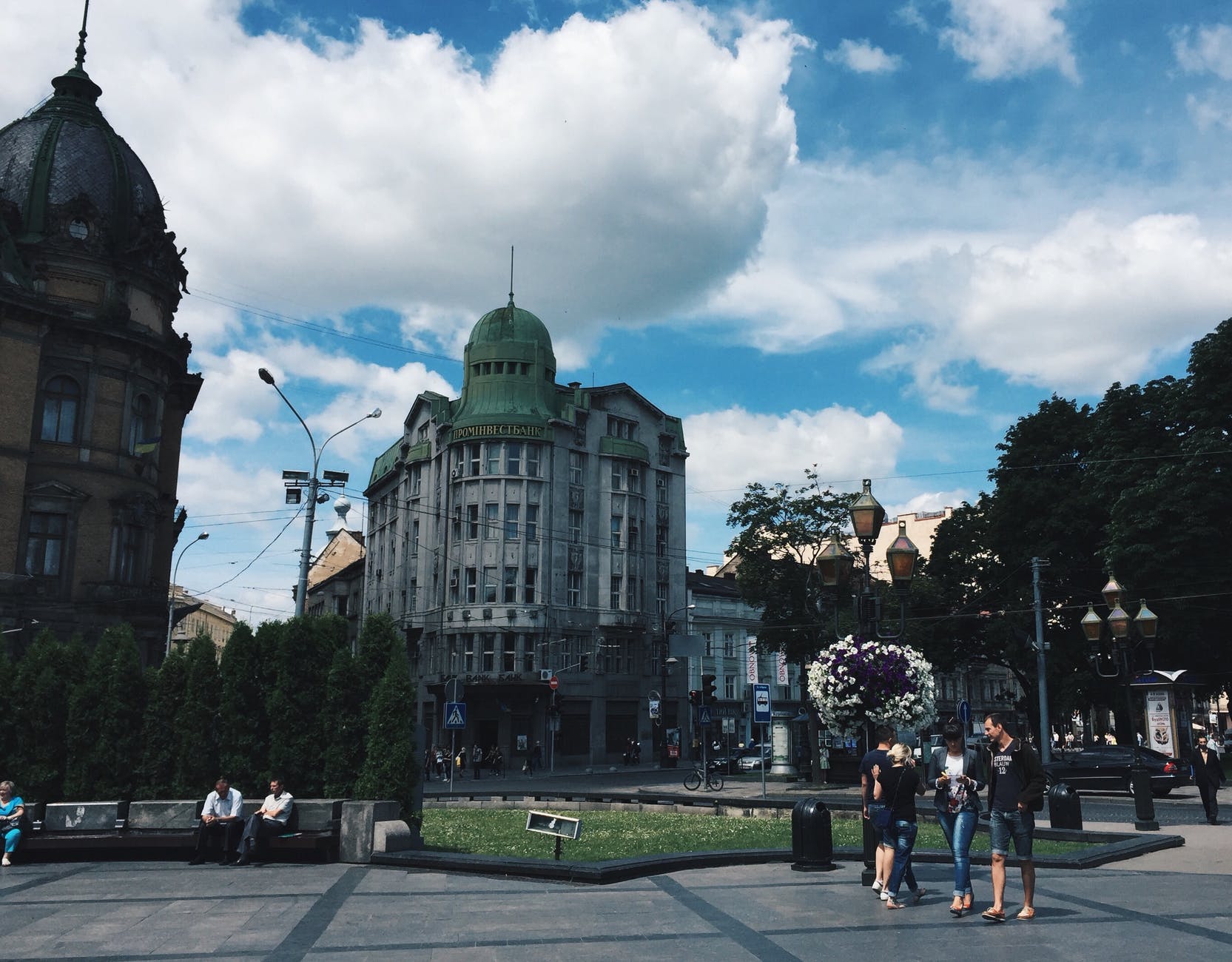![]()
For generations, the West has placed itself at the center of the global Christian landscape through years of colonialism and imperialism. But do we not serve a God who rules over all the nations, fashioning each with His own hand? In order to support our brothers and sisters in Christ, Western Christians must understand their Eastern brothers and sisters in Christ’s faith-based traditions. One of these Eastern traditions of Christianity is the Slavic faith tradition: Ukrainian Christianity.
Bethany Malone, junior education major, moved from Oklahoma to a small Ukrainian village outside Kyiv with her missionary parents in 2012 until 2015. Malone’s family moved back to Ukraine in 2017, where they currently work with persons with disabilities. Malone describes her first impressions of the culture as intimidating, frightening and high in judgment. However, she attributes this to the long-standing influence of the Soviet Union. “For such a long time, they could not trust people, and so general interactions with people are cold. It’s such a cold-culture place. You don’t talk to me; I don’t talk to you … But once you get to know them, all that coldness is melted away, and they are the kindest, most hospitable people. If they invite you into their home, they will pull out the best tea, the best cookies and chocolates, or, if you’re going for a meal, they will give you the best they can possibly give you.”
After years searching for a spiritual center in a sea of international and orthodox churches, Malone’s family joined a Ukrainian Baptist church. “In the Western church, service starts at 11:30, we have a timer that counts down to when service starts, you’ll have a minute to greet each other and then you’ll keep going—and it’s worship, announcements, sermon, worship, praying and leave. It’s very straightforward, and we know exactly what’s going to happen,” Malone said. “At my church in Ukraine, we have a general schedule, but you never know what you’re going to get. Sometimes the little kids’ Sunday school class wants to perform a song, so they’ll come and perform a song. We have this one lady who writes poetry because that’s how the Lord speaks to her. And she’ll come up and read her poem for the week. We kind of have this open mic where you can talk about how the Lord has been working in your life or how you feel like the Spirit is leading you right now. You just never know. Literally, it’s as the Spirit leads.”
Hannah Sanderford, freshman international business major, moved with her family to Kyiv, Ukraine at the age of three, only returning to the United States every other summer and for a single sabbatical. Her parents, missionaries with the Navigators organization, previously focused on student ministry through participating in English clubs for students. Currently, Sanderford’s parents work with former students with whom they have maintained close relationships, encouraging and walking with them through early adulthood and family life. Sanderford’s take on Ukrainian culture was similar to that of Malone, although slightly more nuanced as a resident of 16 years. “I have a theory that it’s a suppressed, warm culture … ” she said. “The younger generation is becoming warmer and more Westernized but not as much as the older generation which is more cold, so it’s in a weird transition phase, which is definitely interesting.”
Sanderford explained the current political tension in Ukraine, shaping its culture. “In 2014, the president was going to sign something to start the process for getting Ukraine into the EU. He didn’t sign the paper so there were some peaceful protests, and then he sent out the police, and they beat up a ton of people,” Sanderford explained. “Over the course of a year, there were 100 people killed, and millions of people flooded the street. There were tires burning, and we could see the smoke from our windows … so Russia invaded Ukraine and took over the Crimean Peninsula and the Black Sea. They still are invading. But, because of that, Ukrainian culture has become a lot more patriotic. A lot more, ‘We got this.’ It’s just really interesting to see it change. Working in the military used to be looked down upon a lot, but now it’s like you’re standing up for our country against Russia. It was a really big change in Ukrainian culture.”
Sanderford discussed how the war’s influence had spread even to religion in Ukraine. “The Russian Orthodox church is the main church in Ukraine,” she said. “Recently, the Ukrainian Orthodox church completely separated. I don’t know the logistics of that. But they’ve completely separated and are standing up against the Russian orthodox church … pulling away from Russia, pulling away from the old ways, which, in some ways, leads people to be looking for other things. Sometimes students will be like, ‘I’m not Christian because that was in the Soviet Union.” Sanderford describes her parents’ missionary work as helping young Ukrainians to re-learn the basics of the faith by utilizing their curiosity. “[Christianity] has lost its meaning and people are turning away from those rituals because of the Soviet Union and [are] looking away because of Russia. Taking advantage of it sounds bad, but we use it as a gateway.”
Western Christians can understand their Eastern brothers and sisters in Christ’s traditions of worship. Despite the dangers of the rekindled Ukraine-Russia conflict, Christ’s Love is spread to the Ukrainians. Those God calls to face that danger, as well as those to whom they are sent, should remain in the prayers of their Western brothers and sisters in Christ.
Photo courtesy of Pexels





